Alain Prost and Ayrton Senna were the two most successful drivers of their era. Between them, they won over 90 races and 7 world championships. The time period the book covers from from the late 70s to the day of Senna's death in 1994. Most of it is devoted to chronicling the careers of both men and the one team, McLaren, that was pivotal in both their careers as it rose under the leadership of Ron Dennis to become a potent force in F1 during the 1980s. Both Prost and Senna would race for McLaren for 6 years. They had only two years as teammates, but the intense desire of both men to win ignited an explosive rivalry, the likes of which had not been seen in F1 before or after.
We go through this compelling tale through the eyes of several people in the F1 paddock around them - Prost and Senna themselves, other racers, team bosses, engine suppliers and support staff. The author goes to great pains to ensure that this is no one-sided tale. Each of the interviewees brings his own viewpoint, anecdotes and opinions. The end result is both rich and fascinating. For a fan of motorsport history, a fan of either of these men, or just someone who enjoys a compelling human tale - this book is must read.
Senna Versus Prost: The Story of the Most Deadly Rivalry in Formula One review
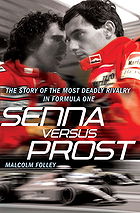 Posted : 14 years, 1 month ago on 15 May 2011 07:44
(A review of Senna Versus Prost: The Story of the Most Deadly Rivalry in Formula One)
Posted : 14 years, 1 month ago on 15 May 2011 07:44
(A review of Senna Versus Prost: The Story of the Most Deadly Rivalry in Formula One) 0 comments, Reply to this entry
0 comments, Reply to this entry
Senna review
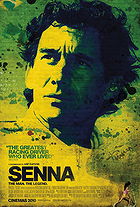 Posted : 14 years, 1 month ago on 12 May 2011 07:19
(A review of Senna)
Posted : 14 years, 1 month ago on 12 May 2011 07:19
(A review of Senna)Absolutely spell binding. I may be biased as a long time fan of F1 but this has to one of the best, at least in the Top 5 documentaries that has ever been put on screen. Ayrton Senna is a legendary figure, not just in Brazil, but around the world. I think this is the first time anyone has managed to capture the essence of what Senna was, what he meant to the sport and to the rest of the world. I can't help but be moved.
 0 comments, Reply to this entry
0 comments, Reply to this entry
Beneath the Planet of the Apes review
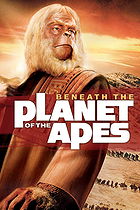 Posted : 14 years, 1 month ago on 9 May 2011 06:21
(A review of Beneath the Planet of the Apes)
Posted : 14 years, 1 month ago on 9 May 2011 06:21
(A review of Beneath the Planet of the Apes)Sequel to the sci-fi classic, 'Planet of the Apes', this movie picks up right where the original left off. This time they go totally camp with the predictably ridiculous results. There's some interesting parts, mostly continuing the themes of the original movies - exploring ape society, the results of nuclear war etc. The problem is that the main theme of the movie - the addition of the race of humans with extraordinary mental powers just goes nowhere. While the end of the first movie was a shocker, the end of this one is just pointless. The movie ends up coming across as a rant against war, especially nuclear war with a ridiculous story tagged on as an afterthought.
 0 comments, Reply to this entry
0 comments, Reply to this entry
Into Thin Air: A Personal Account of the Mt. Everest Disaster review
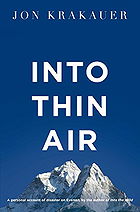 Posted : 14 years, 2 months ago on 3 May 2011 07:34
(A review of Into Thin Air: A Personal Account of the Mt. Everest Disaster)
Posted : 14 years, 2 months ago on 3 May 2011 07:34
(A review of Into Thin Air: A Personal Account of the Mt. Everest Disaster)Jon Krakauer was one of the climbers that was attempting to reach the peak of Mt Everest on May 11, 1996. Before the day was over, the mountain would claim the lives of eight people. This book is an astonishing account of the events of that day, and of the days leading up to it. Krakauer is a skilled writer and he combines it with the attention to detail of a journalist. The result is a book that takes you into the heart of the disaster and describes in excruciating detail the struggle that is the ascent of Everest. The events of the book prove that real events and people are more compelling and astonishing than any fiction could possibly be.
 0 comments, Reply to this entry
0 comments, Reply to this entry
The King's Speech: How One Man Saved the British Monarchy review
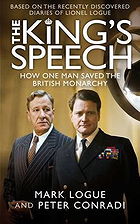 Posted : 14 years, 2 months ago on 18 April 2011 06:44
(A review of The King's Speech: How One Man Saved the British Monarchy)
Posted : 14 years, 2 months ago on 18 April 2011 06:44
(A review of The King's Speech: How One Man Saved the British Monarchy)The story of how an Australian speech therapist, with a passion for helping people, helped King George VI overcome his debilitating stutter. As can be imagined, for someone who lived his life in the public eye and had innumerable speaking appointments and speeches, it was a terrifying ordeal. Their relationship assumes a very special significance when George unexpectedly becomes the King after his brother abdicates and World War II looms. The King is now the focal point for British national resistance and his speeches are a rallying cry for the nation as a whole.
The book is an excellent read, both on it's own and as a companion to the movie of the same name. The viewpoint of the book is mostly of Lionel Logue, the King's speech therapist, as it is based on his diaries. However, the letters from the King that were also preserved by him provide some idea of how the King viewed his relationship. It's matter of fact style might put off some people, but the complete absence of drama increases the effectiveness of the story being told. The truth, unvarnished, is often more compelling than any fiction can possibly be.
The book is an excellent read, both on it's own and as a companion to the movie of the same name. The viewpoint of the book is mostly of Lionel Logue, the King's speech therapist, as it is based on his diaries. However, the letters from the King that were also preserved by him provide some idea of how the King viewed his relationship. It's matter of fact style might put off some people, but the complete absence of drama increases the effectiveness of the story being told. The truth, unvarnished, is often more compelling than any fiction can possibly be.
 0 comments, Reply to this entry
0 comments, Reply to this entry
Lolita review
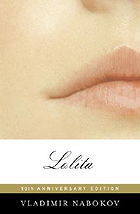 Posted : 14 years, 2 months ago on 13 April 2011 12:16
(A review of Lolita)
Posted : 14 years, 2 months ago on 13 April 2011 12:16
(A review of Lolita)Lolita is a strange beast of a book. The conflicting emotions that ran through my mind make it impossible to place it any specific genre of novel. Mysteries are supposed to surprise the reader, comedies are supposed to delight the reader, dramas are supposed to move the reader and thrillers are supposed to get their pulse racing. Where does that put Lolita? It manages to move, disgust and make me giggle, sometimes all three in the same chapter. No wonder I was confused about how I felt for most of the book.
The second part of the book was somehow more tolerable than the first. The overarching themes of the story - obsession, desperation, isolation and the resulting fear and paranoia make for compelling reading. Compared to the second part, the first part was a confusing jumble of emotions as frivolity and humor mingle with the disgust I felt at the narrator. In retrospect, I think they two halves of the novel necessarily play off each other. The first half is all about the savage and cruel frivolity of narrator's monstrous nature, while the second is all about it's dark and tragic consequences. Even among the doom and gloom, the penultimate chapter made me smile. Like I said, this book will put you through a crazy jumble of emotions.
On reflection, I have to say it's not the book I thought it was, and I suspect that is true of many people who have only heard of it in fleeting. The title has such cultural connotations that are in no way supported by the text of the book itself. The narrator is a cruel and selfish man who destroys the childhood of girl he is obsessed with, and even he realises it. What humanizes him in the end is how pathetic and broken his obsession has made him and the recognition that obsessions tend to do that to the best of us. This is not an easy book to read.
The second part of the book was somehow more tolerable than the first. The overarching themes of the story - obsession, desperation, isolation and the resulting fear and paranoia make for compelling reading. Compared to the second part, the first part was a confusing jumble of emotions as frivolity and humor mingle with the disgust I felt at the narrator. In retrospect, I think they two halves of the novel necessarily play off each other. The first half is all about the savage and cruel frivolity of narrator's monstrous nature, while the second is all about it's dark and tragic consequences. Even among the doom and gloom, the penultimate chapter made me smile. Like I said, this book will put you through a crazy jumble of emotions.
On reflection, I have to say it's not the book I thought it was, and I suspect that is true of many people who have only heard of it in fleeting. The title has such cultural connotations that are in no way supported by the text of the book itself. The narrator is a cruel and selfish man who destroys the childhood of girl he is obsessed with, and even he realises it. What humanizes him in the end is how pathetic and broken his obsession has made him and the recognition that obsessions tend to do that to the best of us. This is not an easy book to read.
 0 comments, Reply to this entry
0 comments, Reply to this entry
Showgirls (1995) review
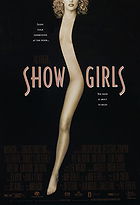 Posted : 14 years, 2 months ago on 10 April 2011 07:31
(A review of Showgirls (1995))
Posted : 14 years, 2 months ago on 10 April 2011 07:31
(A review of Showgirls (1995))Big budget production married to soft core pornography. As a drama, this is mediocre though not the worst movie I've ever seen. As pornography, it's a failure unless you you find the outrageous campiness to be titillating. On the whole, probably not worth your time either way.
 0 comments, Reply to this entry
0 comments, Reply to this entry
The Killing II review
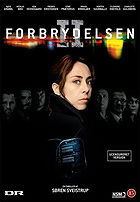 Posted : 14 years, 2 months ago on 9 April 2011 04:40
(A review of The Killing II)
Posted : 14 years, 2 months ago on 9 April 2011 04:40
(A review of The Killing II)Crime mystery thriller that keeps you on tenterhooks for much of it's 10 hour run but falls short of "must see" television perfection. The writer has tried to throw in many ingredients into the mix - a conspiracy on many levels of government, political intrigue, corruption, several dead ends and more than one twist in the investigation.
Unfortunately, the whole package isn't enough to sustain the story for ten episodes. This results in the same themes being re-used in the second half of the show, and all the tension and intrigue just dissipates after the 6th or 7th hour. Cutting the show to just 6 or even 8 episodes would have served the story better.
Overall, a solid mystery thriller that fans of the genre (like me) will no doubt lap up with considerable glee.
Unfortunately, the whole package isn't enough to sustain the story for ten episodes. This results in the same themes being re-used in the second half of the show, and all the tension and intrigue just dissipates after the 6th or 7th hour. Cutting the show to just 6 or even 8 episodes would have served the story better.
Overall, a solid mystery thriller that fans of the genre (like me) will no doubt lap up with considerable glee.
 0 comments, Reply to this entry
0 comments, Reply to this entry
John Woo Delivers
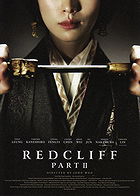 Posted : 14 years, 3 months ago on 20 March 2011 04:27
(A review of Red Cliff Part II)
Posted : 14 years, 3 months ago on 20 March 2011 04:27
(A review of Red Cliff Part II)Red Cliff : Part I left us at a crucial juncture in the story, with the alliance between the two southern Chinese warlords seemingly haven broken down even before the main battle has been fought. The army is encamped in the eponymous Red Cliff valley, with the army of the Han kingdom on the other side of the Yangtze river.
For 2/3rd of the movie, we are essentially watching preparations for the battle of Red Cliff, which forms the climactic scene of the movie. There are other sub-plots in progress - the breakdown of the Southern alliance and the spy from the alliance who infiltrates the camp of the Han army. All of these things keep you engrossed for the length of the movie, helped along by the great direction and pacing, not to mention the outstanding acting by all involved.
One of the highlights is the interaction between the characters of Zhou Yu (played by the legendary Tony Leung Chiu Wai) and Zhu-ge Liang (played by the excellent Takeshi Kaneshiro). Formerly on opposing sides, they are now united in the alliance of the Southern warlords. Much of the time they are discussing strategy in an semi-ironic fashion but you can feel the seeds of a deep friendship being sown. Both actors play it to perfection.
The climactic battle is filled with heroic acts, sacrifices, mortal combat and explosions, in the best traditions of cinematic battles and brings all the sub-plots to their conclusions during or just after it, in the best traditions of good screenwriting. The movie puts you through a series of emotions and reaches an emotional peak as the battle winds down, leaving us enthralled by the end. As I mentioned in the review for Part I, the battle scenes tread the middle ground in terms of style, much like the Lord of the Rings trilogy, keeping things in touch with reality while limiting the amount of blood and gore.
By the end of Part II, the movie has gone through more than four and a half hours of running time. While the first half of Part I was somewhat dull, although it could be argued that it was also necessary to set up the rest of the story, the remaining three hours or so is entirely engrossing. Truly an epic.
For 2/3rd of the movie, we are essentially watching preparations for the battle of Red Cliff, which forms the climactic scene of the movie. There are other sub-plots in progress - the breakdown of the Southern alliance and the spy from the alliance who infiltrates the camp of the Han army. All of these things keep you engrossed for the length of the movie, helped along by the great direction and pacing, not to mention the outstanding acting by all involved.
One of the highlights is the interaction between the characters of Zhou Yu (played by the legendary Tony Leung Chiu Wai) and Zhu-ge Liang (played by the excellent Takeshi Kaneshiro). Formerly on opposing sides, they are now united in the alliance of the Southern warlords. Much of the time they are discussing strategy in an semi-ironic fashion but you can feel the seeds of a deep friendship being sown. Both actors play it to perfection.
The climactic battle is filled with heroic acts, sacrifices, mortal combat and explosions, in the best traditions of cinematic battles and brings all the sub-plots to their conclusions during or just after it, in the best traditions of good screenwriting. The movie puts you through a series of emotions and reaches an emotional peak as the battle winds down, leaving us enthralled by the end. As I mentioned in the review for Part I, the battle scenes tread the middle ground in terms of style, much like the Lord of the Rings trilogy, keeping things in touch with reality while limiting the amount of blood and gore.
By the end of Part II, the movie has gone through more than four and a half hours of running time. While the first half of Part I was somewhat dull, although it could be argued that it was also necessary to set up the rest of the story, the remaining three hours or so is entirely engrossing. Truly an epic.
 0 comments, Reply to this entry
0 comments, Reply to this entry
John Woo's Masterpiece
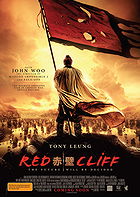 Posted : 14 years, 3 months ago on 20 March 2011 04:26
(A review of Red Cliff)
Posted : 14 years, 3 months ago on 20 March 2011 04:26
(A review of Red Cliff)Subtlety and restraint are not two words that I usually associate with John Woo. He has made a career out of over the top, overly melodramatic action thrillers that more often than not sink under the weight of their own stylistic pretensions (think Mission:Impossible 2). However, every director has one great epic in them, and this is John Woo's masterpiece.
The movie tackles a story based on the the battle of Red Cliff, largely adapted from the Chinese language epic 'The Romance of the Three Kingdoms', considered to be one of the most influential works of Chinese Literature. The relationship between the story and actual history is much like the relationship of Shakespeare's works to actual history, in a word 'loose'. It relates the conflict between the three warring kingdoms in the Three Kingdoms era of Chinese history.
Red Cliff : Part I largely deals with the forming of alliances and preparations before we actually enter the arena of war. The aggressor is the Prime Minister of the Han Kingdom, Cao Cao, who wants to conquer the two most powerful warlords in southern China. The two warlords, formerly enemies, form an alliance to face a common enemy. We meet the protagonists, the generals and leaders of the three armies. It's a leisurely introduction, verging on the dull at times. This is when I started to realise that this wasn't your typical John Woo movie. The characters weren't the typical caricatures that populate John Woo's movies, they come across as real characters. Incredibly noble and heroic characters, but real characters nevertheless.
The battle scenes are shot in great detail, even as the brutality is kept in check. This isn't the Steven Spielberg style of shooting battles, but it isn't quite superficial Hollywood either. They follow a happy middle ground between the two and it works very well, much like it worked for movies like the Lord of the Rings trilogy. The first battle is not the main battle of Red Cliff, just an initial skirmish. It's a 35 minute mini-epic from start to finish, almost in real time on-screen. It sets the tone for the rest of the movie as the action takes a back seat to planning and strategy. In fact, much of both movies is about planning and strategy with the battles as the climatic highlights, not the entire show.
Part I isn't perfect, the pace is slow at the beginning and I was wondering where the movie was going for a while. However, the production values and the acting is excellent throughout. It was almost John Woo was in unfamiliar territory at the start and didn't know how to best go about it. Thankfully, he finds his feet by the half way mark, which sets up things perfectly for the story to take flight in the next part.
The movie tackles a story based on the the battle of Red Cliff, largely adapted from the Chinese language epic 'The Romance of the Three Kingdoms', considered to be one of the most influential works of Chinese Literature. The relationship between the story and actual history is much like the relationship of Shakespeare's works to actual history, in a word 'loose'. It relates the conflict between the three warring kingdoms in the Three Kingdoms era of Chinese history.
Red Cliff : Part I largely deals with the forming of alliances and preparations before we actually enter the arena of war. The aggressor is the Prime Minister of the Han Kingdom, Cao Cao, who wants to conquer the two most powerful warlords in southern China. The two warlords, formerly enemies, form an alliance to face a common enemy. We meet the protagonists, the generals and leaders of the three armies. It's a leisurely introduction, verging on the dull at times. This is when I started to realise that this wasn't your typical John Woo movie. The characters weren't the typical caricatures that populate John Woo's movies, they come across as real characters. Incredibly noble and heroic characters, but real characters nevertheless.
The battle scenes are shot in great detail, even as the brutality is kept in check. This isn't the Steven Spielberg style of shooting battles, but it isn't quite superficial Hollywood either. They follow a happy middle ground between the two and it works very well, much like it worked for movies like the Lord of the Rings trilogy. The first battle is not the main battle of Red Cliff, just an initial skirmish. It's a 35 minute mini-epic from start to finish, almost in real time on-screen. It sets the tone for the rest of the movie as the action takes a back seat to planning and strategy. In fact, much of both movies is about planning and strategy with the battles as the climatic highlights, not the entire show.
Part I isn't perfect, the pace is slow at the beginning and I was wondering where the movie was going for a while. However, the production values and the acting is excellent throughout. It was almost John Woo was in unfamiliar territory at the start and didn't know how to best go about it. Thankfully, he finds his feet by the half way mark, which sets up things perfectly for the story to take flight in the next part.
 0 comments, Reply to this entry
0 comments, Reply to this entry
 Login
Login
 Home
Home 96 Lists
96 Lists 257 Reviews
257 Reviews Collections
Collections